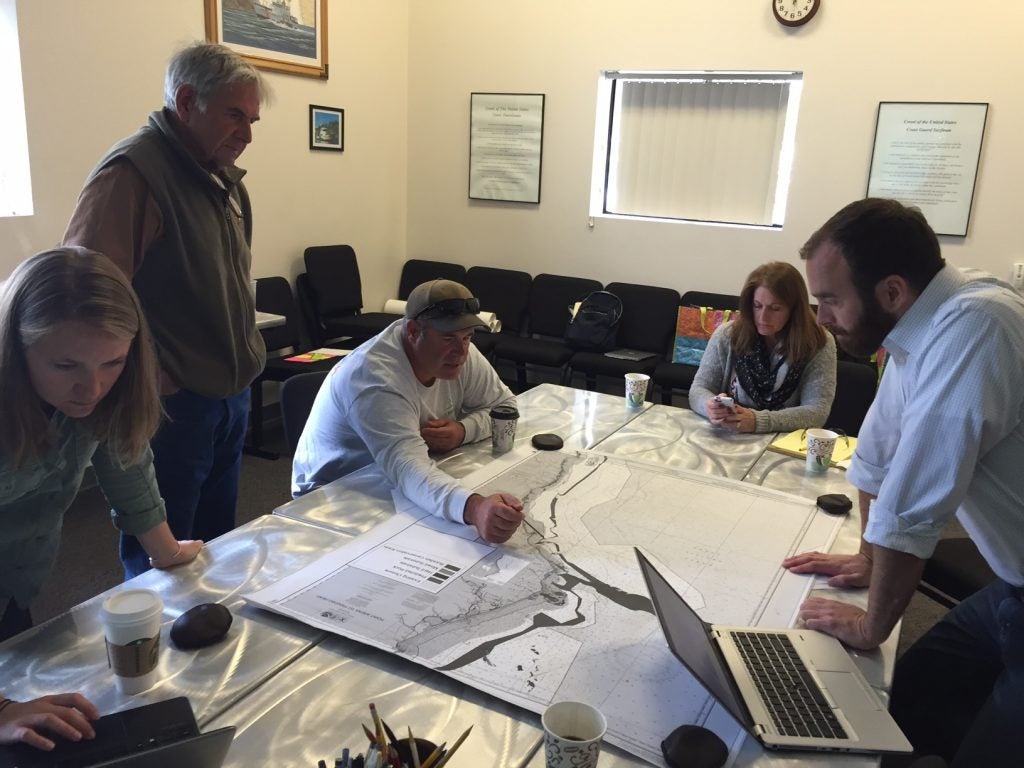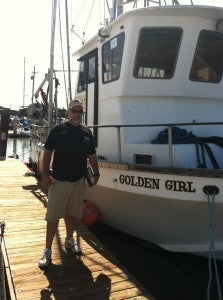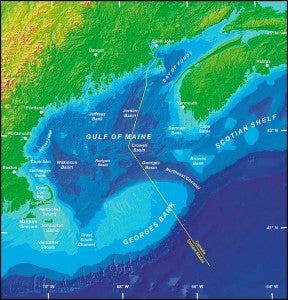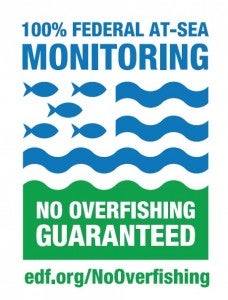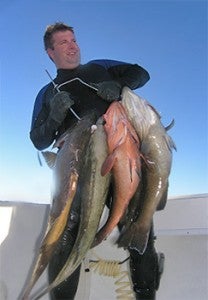
Jason DeLaCruz, a fisherman with Gulf Wild, holds grouper caught in the Gulf of Mexico. Fishermen provide detailed tracing information for the fish to market them to high-end chefs and retailers. Photo by Rich Taylor.
In E&E Greenwire today, reporter Allison Winter writes about a seafood label called Gulf Wild, which puts a barcode on fish from the Gulf of Mexico’s catch share program. Consumers can use that barcode to find out where exactly the fish was caught and the name of the fishermen who landed it. Fishermen involved in Gulf Wild also sign a “conservation covenant” and consumers can feel better knowing that the catch share program has successfully ended commercial overfishing. In addition, fishermen are no longer required, as they were under the old regulations, to toss good fish overboard if they accidentally catch it on the wrong day.
The article also discusses how catch shares have played a role in increasing seafood traceability for chefs and ultimately consumers:
“Some fishermen in the program also credit a new management system for creating the opportunity to start the program… One result, according to those involved with the fishery, is that fishermen have been more willing to cooperate with each other and have the time and incentive to fish more carefully and find new ways to market their fish.”
“(Catch share) advocates — including chefs, some environmental groups and fishermen involved in the programs — say they create a stable environment for fish and fishermen and a steadier supply for the market. Rick Moonen, a renowned chef and advocate for sustainable seafood, is among them. Moonen supports catch shares for the environmental benefits but said his business also benefits with better-quality fish. Fishermen in a catch share can work more slowly and try to get a premium for fish that were handled carefully.
‘Sometimes, with other fisheries, you end up with a beat-up fish, and as a chef you’re thinking, this sucks,” Moonen said. “I would rather pay another dollar a pound and get a better fish. Boom, there you go, catch shares make that possible.’”
Read the full article here










